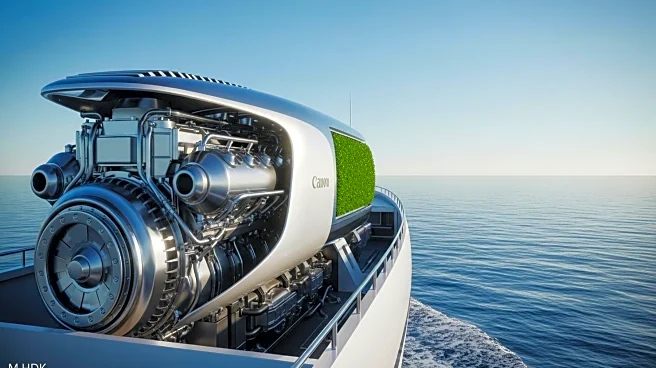What's Happening?
The International Maritime Organization (IMO) is intensifying efforts to prepare seafarers for the transition to alternative fuels, in line with its revised strategy to cut greenhouse gas emissions from ships. The organization has issued interim guidelines for training seafarers on ships using alternative fuels and new technologies. These guidelines are expected to form the basis for mandatory training requirements under the revised 1978 STCW Convention Code. The initiative is part of a broader effort to support decarbonization and digitalization in the maritime industry.
Why It's Important?
As the shipping industry moves towards decarbonization, the need for skilled personnel capable of operating vessels using alternative fuels becomes critical. The IMO's guidelines aim to ensure that seafarers are adequately trained to handle new technologies safely, thereby facilitating a smoother transition to greener shipping practices. This initiative not only supports environmental goals but also enhances the safety and efficiency of maritime operations, potentially leading to increased adoption of alternative fuels across the industry.
What's Next?
The IMO's Sub-Committee on Human Element, Training and Watchkeeping will consider fuel- and technology-specific training guidelines in February 2026. These guidelines will likely influence future regulatory frameworks and training programs, shaping the skills and competencies required for seafarers in a decarbonized shipping industry. As the industry adapts to these changes, collaboration between regulatory bodies, shipping companies, and educational institutions will be essential to ensure a well-trained workforce.









